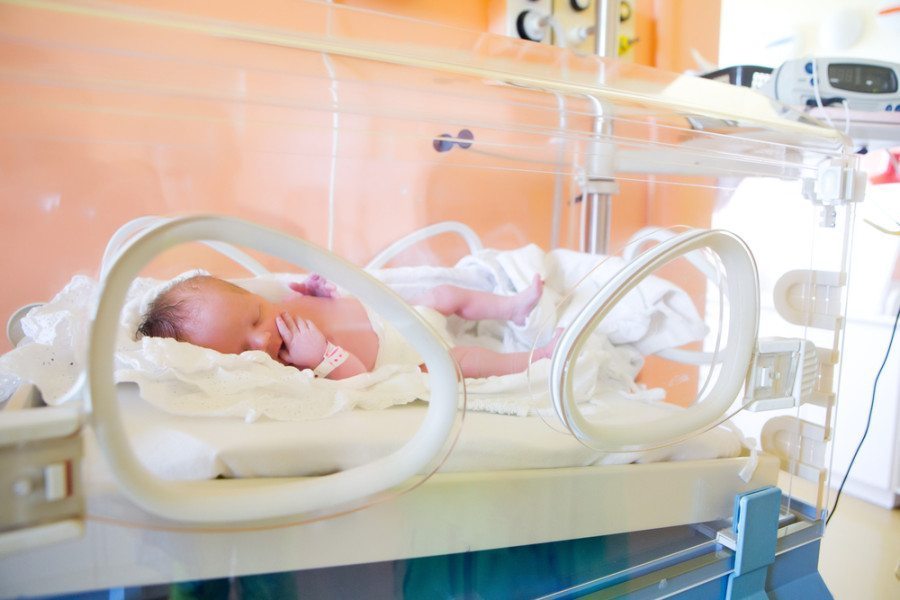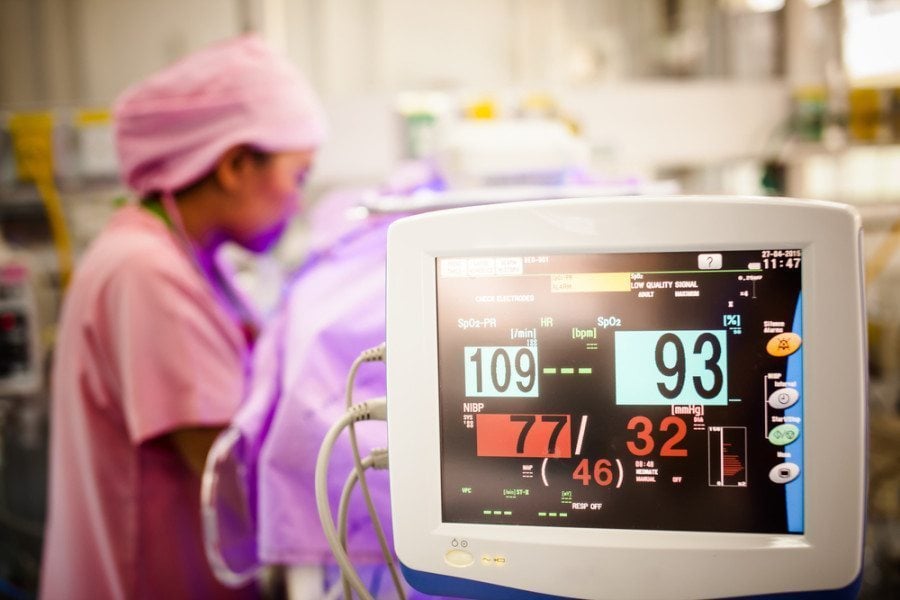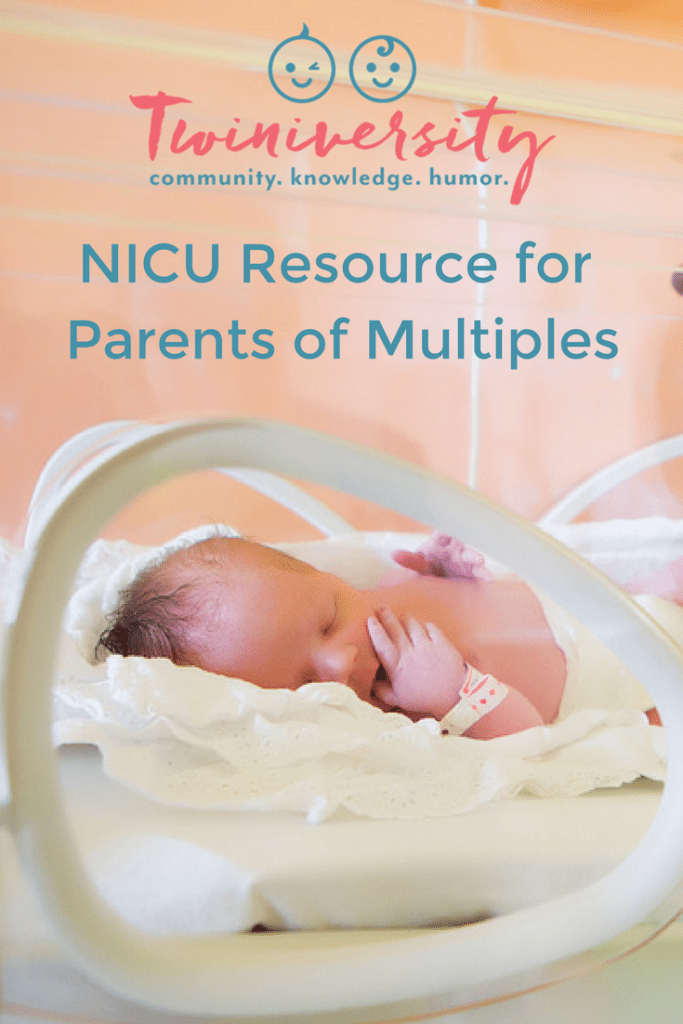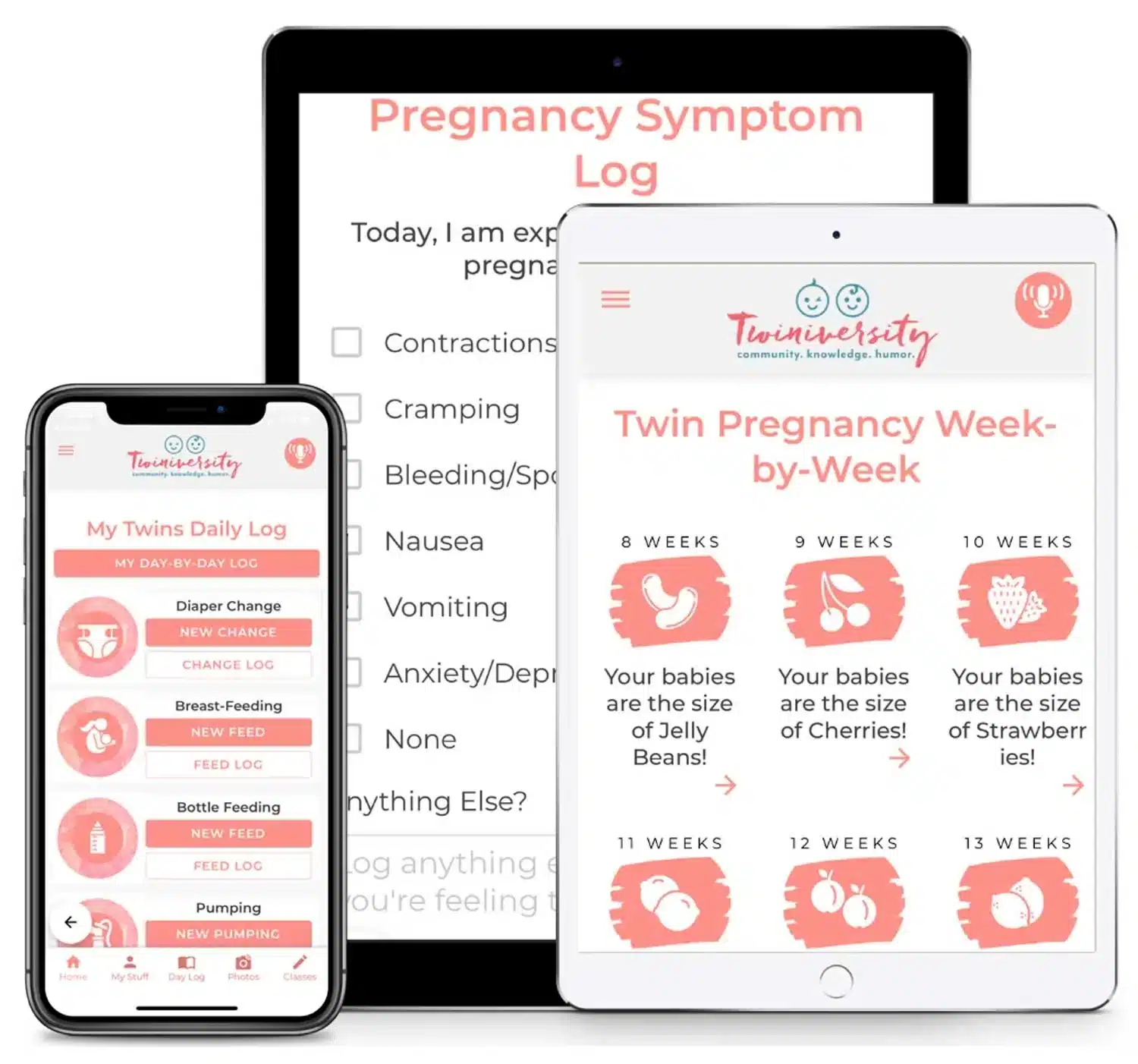No one ever plans that their babies will spend time in the neonatal intensive care unit (or NICU, for short). Unfortunately, with a multiples pregnancy you have a higher risk of the babies arriving early, so the NICU is something you’ll want to learn about to prepare for delivery day.
We asked our multiples families who had long stays in the NICU to offer their advice and this NICU resource is the result of their responses. Over 50 families contributed their tips, advice, and wisdom and we are passing it on to you to help you prepare, cope, and understand that you are NOT alone. Enduring a NICU stay can be very scary and confusing, but we are here to prepare you and help get you through it.
To find all the NICU articles on our site, click here.

Planning Your Leave of Absence
As soon as you find out that you are pregnant with multiples it is important to speak with your employer’s human resources department to assess all of your options. You need to know what kinds of leave programs your employer offers ahead of time, if they offer any. Some employers offer paid maternity/paternity leaves, while many make you take unpaid time. If you are not eligible for FMLA many states have their own separate, state-sponsored leave programs. Check to see if your employer will allow you to pre-fill out paperwork to be ready in case you need to start your leave unexpectedly.
Many parents decide to (or are required to) exhaust their sick and vacation days and then use their short-term disability benefits (STD). STD is typically 60% of the employee’s salary, but there are limits to these benefits. Check with your HR department for full details, but expect that you will be able to start STD if you are placed on medical bed rest with a doctor’s note and your benefits will typically extend 6 to 8 weeks after your birth, depending on if your birth was vaginal or c-section.

What is the Family Medical Leave Act (FMLA)?
- The Family Medical Leave Act (FMLA) is a federal US law that guarantees certain employees up to 12 workweeks of unpaid leave in a 12-month period with no threat of job loss.
- FMLA legally requires your employer to hold your job or offer you a similar job at the same salary upon your return.
- FMLA requires that employers covered by the law maintain the health benefits for eligible workers just as if they were working, as long as employees keep up with paying their monthly premiums.
- Employer must employ 50 or more employees for employees to be eligible for FMLA
- Caring for newly adopted children is included in FMLA
- You must have worked at least 1,250 hours in the previous 12 months under your current employer to be eligible for FMLA
- You are allowed to break up your 12 weeks of FMLA over the course of a year. This may be beneficial to parents who have extended NICU stays; going back to work while the babies are in the hospital and restarting your FMLA when they are ready to come home is an option.
- Both parents can take FMLA simultaneously, but if both parents work for the same employer FMLA allows that employer to limit the time off available. For these parents, an employer may (but does not have to) require parents to combine their parental leave, so that they are entitled to a total of 12 weeks of parental leave, not 12 weeks each. However, each parent can still use his or her remaining FMLA time for other purposes covered by the law (i.e. caring for a sick parent.)
- If you choose not to return to work after having a child, your employer may be legally entitled to recoup what it spent on your health insurance during your FMLA leave. However, this is allowed only if your decision not to return to work is voluntary. If you are unable to return to work (for example, because your child was premature and requires constant care), your employer can’t require you to reimburse your health insurance costs.
- An employee is entitled to collect short-term disability only while she is actually unable to work due to pregnancy or childbirth. An employee who is unable to work more than four to six weeks prior to giving birth or continues to be unable to work more than four to six weeks after giving birth may have to submit additional medical documentation to support her claim. The maximum period of disability under the law is 26 weeks.
- You may be able to take an additional unpaid leave of absence after your 12 weeks of FMLA protected leave has ended. Check with your employer to find out if this is available. Be aware that even if you are granted additional leave, because it is not protected under FMLA after the first 12 weeks, your employer can terminate you or cancel your benefits at any time during your leave. Make sure you know all of the risks involved with taking additional leave not under FMLA.
- Download the FMLA guide for employees, created by the US Department of Labor, for more details on FMLA

After Discharge From Labor And Delivery
Once you are discharged from the hospital and the babies are still in the NICU, seeing the babies can become more difficult. If you are recovering from a c-section you are prohibited from driving for a few weeks, which can make things really difficult if you are on your own. If you have older children at home and/or one of your multiples was discharged earlier, you will need help with childcare in order to visit the NICU, where small children are often not allowed. In addition, consider how you will coordinate household tasks and preparing family meals, and start working on a list of people that can pitch in to help. Give those helpers specific tasks to make sure they are following through with their offers of help. If you don’t have help from your friends and family, finding a trusted nanny and/or babysitter will be key.
Many spouses need to return to work fairly quickly, even if their employer provides spousal leave. A 5-day stay in labor and delivery following a c-section can eat up most of that time. If your spouse has to go back to work full or part-time and you are unable to drive you can ask a friend to take you to the hospital on their way to work, or take an Uber or taxi. If you have family members who have flown in to help, have them drop you off and pick you up when you are done to avoid parking fees.
Going Back to Work While Babies Are Still In The NICU
Sometimes (especially in the case of micro-preemies) you know right away that you are gearing up for a long NICU stay. NICU stays are open ended and dependent on the progress that your babies make so it can be beneficial to go back to work at least part-time until they come home. Doing this maximizes the amount of time that you get to spend bonding with them when they come home, while still allowing you to visit them every day in the NICU. Taking turns with your spouse visiting the NICU can also allow for greater coverage.

When Doctors Make Their Rounds
Make sure that you note the times of day that the doctors do their rounds in the NICU. This is a great moment to get some face-time with the doctor and ask some of your more complicated questions. Outside of these times there will only be nurses on duty, and while they are very knowledgeable they are not the person who is developing the care plan for your babies. If you need to ask a doctor a question outside of rounds you will need to have a nurse forward them a message and wait an often lengthy period of time for an answer.
Ask a nurse for the NICU shift change schedule so you can determine the best times to call. If you plan on calling a few times a day to check on your babies when you are not able to be there in person, avoid calling right before a shift change (when they are most busy) or right after a shift change (when the new nurse hasn’t been with your babies all day.)
Your NICU Visiting Schedule and Routine
If at all possible try to create a schedule or daily routine for visiting the NICU. Not only is this important information for the nurses, but it gives your babies a sense of stability in the chaos of rotating nurses and doctors. You can also work with the nurses on the creation and implementation of their feeding and changing schedules.
Managing One Baby In The NICU And One At Home
Every hospital has their own policy on whether or not they will allow you to bring baby A, who was recently discharged with you, to spend time with baby B in the NICU. This is typically enforced to restrict outside germs, as well as limited space on the NICU floor. If your other children are not allowed to visit, it can severely limit the time that you are able to spend at the NICU.
Hospitals are a hotbed of germs so even if it is allowed it may not be advisable to do so. Get a detailed daily schedule from the nurses for the baby still in the NICU. Use this to keep the home baby on the same schedule. This will save you a lot of time when they are both finally home together. Here’s an article on managing your schedule when you have one twin in the NICU and one at home.

Housing Options
If you live far from the hospital where your children were delivered there may be free or low-cost housing options for you to stay close to the hospital. Many hospitals have a small number of family care rooms (small apartment-like rooms) on site. The hospital never advertises this or offers them. You need to ask your nurse or doctor right away if any are available to get the ball rolling. Other options are charities like the Ronald McDonald House. Many families staying at RMH are in a similar situation and because of this these places can create a sense of support and community. The local house coordinators are also a valuable resource for everything from insurance battles to directing you to support groups.
Pumping Breast Milk While Your Babies Are In The NICU
If you can pump breast milk while your babies are in the NICU, do it. With preemies, that liquid gold is even more precious to help develop crucial immunities. ANY amount you can give your babies will help. Most preemies in the NICU are not able to feed directly from the breast just yet because their sucking skills are lacking. Make sure you are using a hospital-grade breast pump that will give you the best output possible.
- Meet with a lactation consultant at the hospital
- A consistent pumping schedule is important; aim for every 3 hours
- Hospitals maintain a pumping room supplied with snacks near the NICU; make sure you are eating regularly to keep your supply up
- Make sure you stay hydrated all day and especially when in the NICU
- NICUs maintain a freezer for breast milk storage to feed the babies throughout the day
- Make sure to clearly label your supply to not confuse it with other moms’ milk

Do I Need Supplies for the NICU?
Everything that nurses need to care for your babies in the NICU is provided by the hospital during their stay. You may supply your own clothing, but it needs to be clearly labeled since it goes through the hospital laundry. (Tip: Make sure there are openings at the feet for wires to thread through. Footed jammies will not work.)
Any products that are on your baby’s station at the time of discharge can be taken home with you. They are usually stocked with everything from diapers and lotions to pacifiers and pumping supplies. Most hospitals have a policy that once something has been opened (even a package of diapers) the package has to be thrown away if any are remaining after the patient leaves. Many nurses will also fill bags with samples and products used in the NICU for you when your babies are discharged. If products are not offered to you, make sure to ask — and ask often! If you have a longer NICU stay, bring a shopping bag with you at each visit and ask to bring home samples of formula and diapers. NICU nurses are usually very generous to parents of multiples. Take anything and everything you can!
Special Medical Equipment After Discharge
Some babies are ready to leave the NICU, but still need a little extra help. This could be anything from oxygen to heart monitors. The hospital will furnish you with all the equipment needed and provide training on how to use each device. Depending on the equipment that is needed, or your child’s diagnosis, you may receive weekly home nurse visits to assist you in their care. Take advantage of these home nurse visits to get all your questions answered and ask your nurse for tips to make your transition home easier.
Products and Resources Recommended By Other NICU Parents
The NICU can be a loud place with so many people coming and going, as well as the constant beeping of machines. Investing in a good white noise/sound machine or even just a free app on your phone can be very beneficial for restful sleep. Also many NICU parents have reported that renting a hospital-grade breast pump (typically covered by insurance) is a must when pumping at home for multiples.

Dealing With The Emotional Toll Of An Extended NICU Stay
- Take advantage of the resources available to you. The staff in the NICU understand the stress you are under, even if you don’t think they do. They are a wealth of information and can help direct you to, and help provide you with, the support you need.
- It is OK and even beneficial to cry. In addition to all the postpartum hormones rushing around in your body this is an extremely stressful time. Seek help from a therapist to help deal with some of the emotional burden if your babies are looking at an extended stay. You need to take care of yourself so you can be 100% present when your babies finally come home.
- Create a Caringbridge page or personal blog to update friends and loved ones collectively. This helps you feel connected, but you don’t have to go through the emotional turmoil of repeating the same information over and over. It also can serve as a creative outlet for you, helping to deal with the stress.
- Allow friends and family to encourage and support you in any way they can.
- Say yes to meals, rides, laundry, and babysitting for your other children. This is not something that you should try to do all on your own, especially if you have support that is willing to help. Reach out to your local Moms of Multiples club or your state Mothers of Multiples association to see what support they can offer.
- Set boundaries and stick to them on when and who you let the visit the babies in the NICU. Having too many visitors can be exhausting and stressful. You have way too much going on to be concentrating on making others happy.
- Be as involved as possible during their NICU stay. Even if you aren’t able to visit every day, call in and check on them.
- Celebrate each milestone that they hit while in the NICU. Enjoy each and every time they grow a little stronger.
- Take lots of photos and videos. Even though right now you may feel that you want to forget this experience ever happened, some day you will look back at those memories and be amazed at how far you’ve come.
- Try to avoid staring at the monitors while you are holding your babies in the NICU. The monitors are not going to tell you anything you already don’t know. Focus on your babies and try to enjoy your time with them.
- If your babies are on some type of monitors when they are discharged and sent home, there might be false alarms because leads do fall off and move around. Try not to panic. The monitors are there to alert you if something does go wrong, and try to stay focused and calm when a monitor does alarm you that it is not picking up a reading off of your baby.
- Try and take the experience day by day. There will be ups and downs, but know that it won’t last for forever and one day this will all seem like a distant memory.
Resources
- The Tiny Footprints Project – The Tiny Footprints Project is a non-profit organization that matches affiliated photographers with families of infants living in the NICU to provide one complimentary lifestyle portrait session.
- Graham’s Foundation – Graham’s Foundation delivers support, advocacy and research to improve outcomes for preemies and their families.
- March of Dimes – March of Dimeshelps moms have full-term pregnancies and they fund research for the problems that threaten the health of babies.
- Fetal Hope – The Fetal Hope Foundation’s mission is to provide support, provide information, fund research, increase awareness and be an outlet for leading medical information pertaining to fetal syndromes. We are all about arming families and healthcare providers with information and helping to save babies’ lives.
Be sure to check out all of our great related articles to help you with caring for your little bundles of joy…
NICU articles
Preemie articles
Breastfeeding articles
Pumping articles
Baby Gear articles
What Do I Need for Twins?
Baby Basics: Newborn Care Articles
Expecting Twins? Start here.








